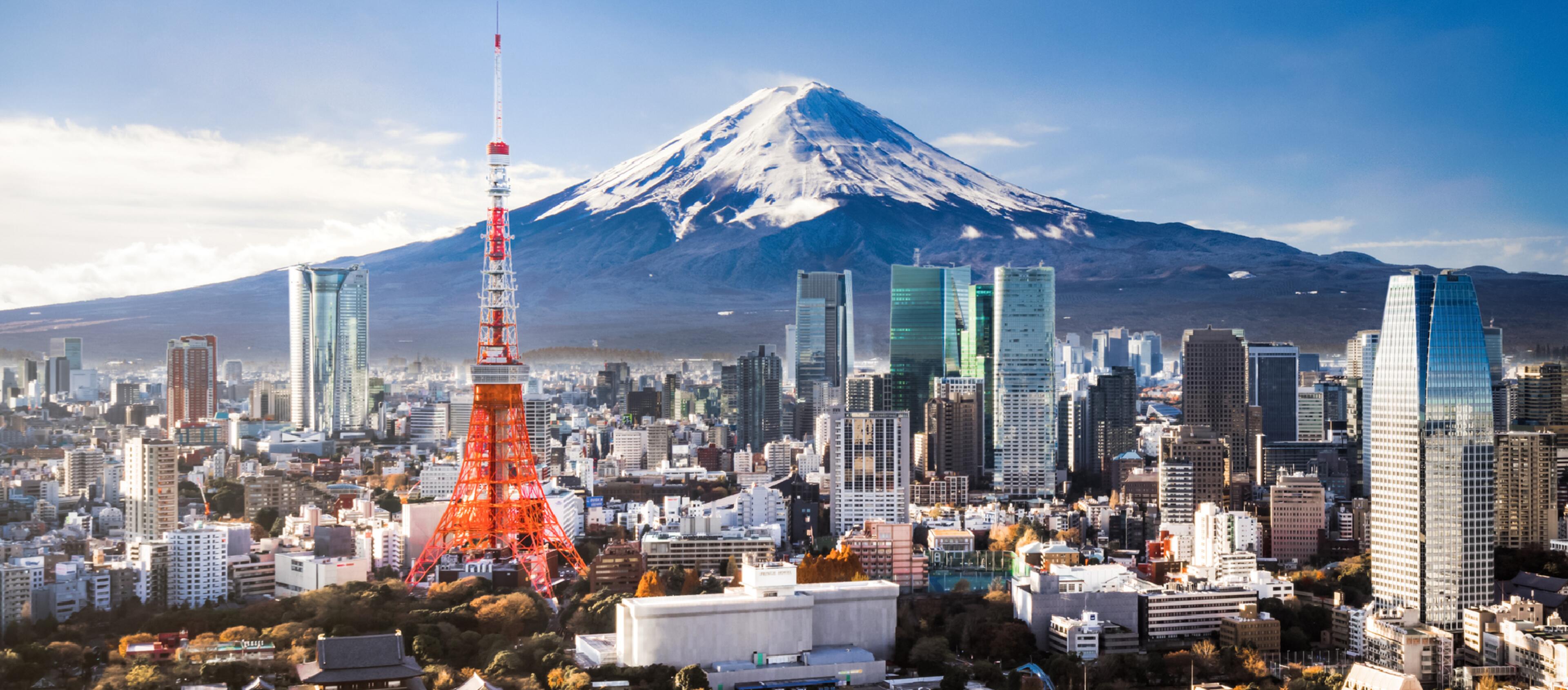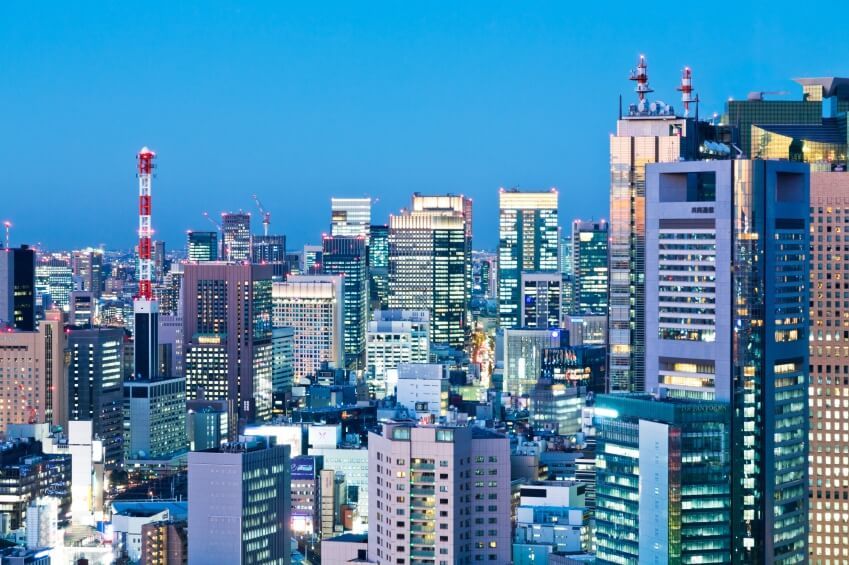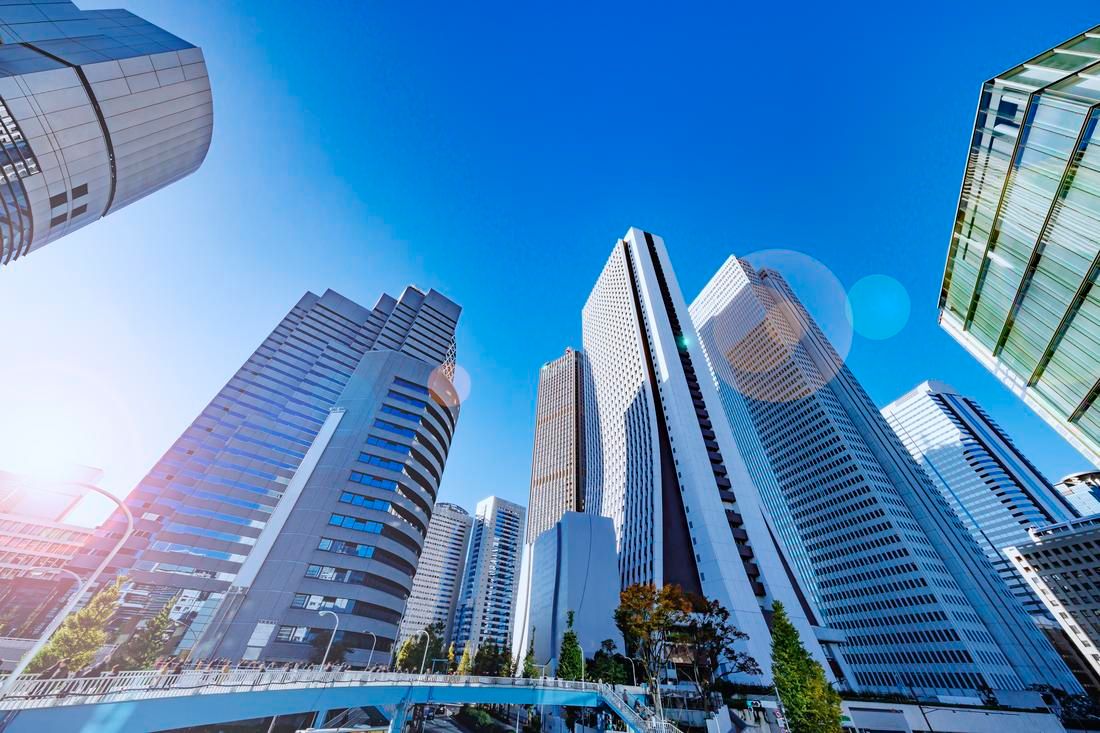The island nation of Japan is smaller than the U.S. state of California. However, Japan is the world’s fifth-largest economy, after the U.S., China, Germany, and India.
If you’re looking to expand into Japan, our guide will tell you everything you need to know.
What to know before hiring in Japan
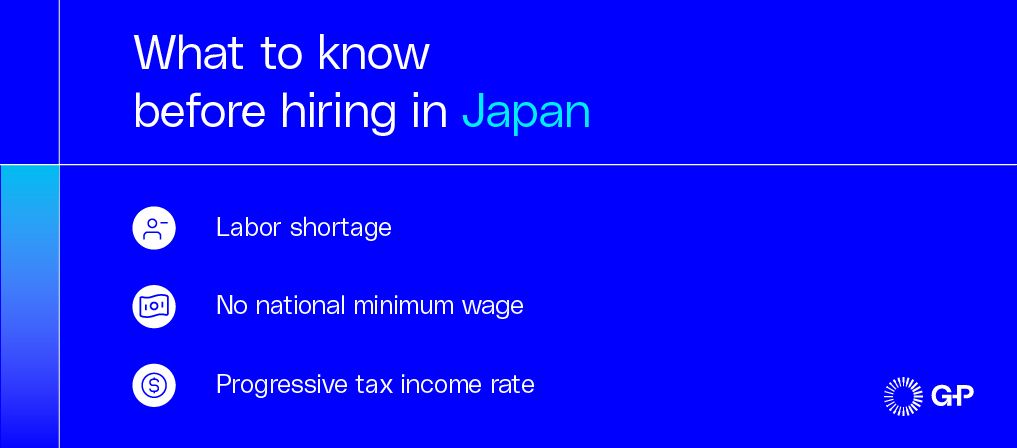
If you’re expanding your business into Japan for the first time, there are important legal requirements to be aware of. These norms and laws influence hiring practices in Japan and many aspects of the employer-employee relationship.
If you’re unsure where to begin, G-P Gia™, our AI-powered global HR agent, can answer your toughest compliance questions across 50 countries — including Japan — and all 50 U.S. states. Reduce your reliance on outside counsel and cut the time and cost of compliance by up to 95% with Gia.
Let’s take a look at five things to know about hiring in Japan.
1. Labor shortage
An aging population and declining birthrates have led to a labor shortage in the country . This means employees are used to excellent job security. Candidates typically receive offers from multiple companies. In interviews, selling your employer brand is just as important as assessing candidates' skills.
2. Employment contracts and work rules
Japan’s Labor Standards Act requires that key working conditions be provided in writing. This includes details such as working hours, wages, job duties, and the possibility of changes to workplace location and job duties.
According to Japanese law, companies with 10+ employees must create work rules and submit them to their local Labor Standards Inspection office. Work rules detail the working conditions you provide employees, including wages, working hours, holidays, company rules, and violation procedures. The Labor Standards Inspection office can give you guidance on whether your work rules cover all the necessary information.
G-P EOR has an Employment Contact Generator to help you draft compliant employment contracts that meet all legal requirements and best practices in Japan.
3. Workweek and minimum wage laws
The standard workweek in Japan is 40 hours, with a maximum of 8 hours per day. The Labor Standards Act regulates work hours to ensure fair conditions and protect employees’ well-being.
The Japanese government takes overtime requests seriously. Employers must file a labor management agreement with the Labor Standards Inspection Office before employees can work overtime. Employees who work extra hours or work during the night or on public holidays are entitled to overtime pay. This typically ranges from 25% to 50% premium on normal wages.
In Japan, the minimum wage isn’t the same across the country. The Japanese government provides a national average based on the cost of living, so local rates vary. Each of the 47 prefectures sets its own minimum wage. As of 2025, the average minimum wage in Japan is JPY 1,054 per hour. Due to the candidate-driven labor market, you’ll need to offer competitive pay and benefits to attract top talent.
4. Paid time off
Japan employees are entitled to paid time off once they’ve worked for a company for six months and attended at least 80% of their scheduled working days. At that point, employees get 10 days of annual leave . After the first six months, employees get one more day after each additional year. So after 18 months, employees get 11 days off. Vacation time is capped at 20 days. An employee will reach this limit after 6.5 years of employment.
You can offer your team in Japan more paid days off than the statutory requirements if you wish. Many employers also offer paid public holidays even though it isn’t legally required. Japan has 16 national holidays . Providing these days as paid holidays can enhance your employer appeal. Paid sick leave isn’t a requirement in Japan.
You can easily administer benefits plans with G-P EOR . Our in-house experts continuously monitor employment laws to meet country-specific regulations and norms. Build and manage benefits plans through our platform to provide a smooth employee experience.
5. Taxes and social security
Japan has a progressive income tax system. Higher incomes are taxed at higher rates. Employers must deduct income tax from employees’ paychecks and send it to the tax authorities.
Both employers and employees contribute to Japan's social security system. This includes health insurance, pension insurance, and workers' accident compensation insurance. Employers and employees share the costs of health and pension insurance equally. Employers pay 0.9% of wages for employment insurance, while employees pay 0.55%. Employers fully cover the cost of workers' accident compensation insurance.
Since social security includes public health insurance, you don’t need to provide private insurance plans. However, you must provide employees with annual physicals and checkups. Regular stress checkups are required for all companies with 50+ employees, regardless of industry.
Top hiring hubs in Japan
Some Japanese cities are known for particular industries. Knowing what each city has to offer can help you channel your hiring efforts to the right place and fill roles faster.
The top talent hubs in Japan are:
-
Tokyo is Japan's capital and largest city. It’s the country's main center for business, finance, and technology. Tokyo has a diverse talent pool and hosts many major Japanese and international banks and fintech companies.
-
Osaka is known for its strong manufacturing and service industries. It has a long history in manufacturing electronics, machinery, robotics, chemicals, and food. Companies like Panasonic and Sharp are based here.
-
Nagoya is a major player in the automotive, aerospace, and manufacturing sectors. Many companies, including Toyota, Mitsubishi, and Boeing are located in the region.
-
Fukuoka is often called Japan's Silicon Valley. The city is known for its startups and for having the highest business opening rate in Japan. It’s also known for blockchain and smart city initiatives.
Yokohama is part of the Greater Tokyo Area. It’s a major port city known for logistics, technology, and international business.
Key industries in Japan
Understanding Japan’s main industries helps you benchmark salaries and benefits. You can use this insight to make smart choices about where to invest and grow your workforce.
The main industries in Japan include:
-
Automotive manufacturing: Japan is well-known for its car companies, like Toyota, Honda, Nissan, Mazda, and Suzuki. The industry covers everything from building vehicles to creating car parts. Specialist talent includes mechanical engineers, industrial automation experts, and quality control engineers.
-
Electronics and electrical equipment: Japan is famous for its advanced electronics, including gadgets, semiconductors, and industrial machines. Companies like Sony and Panasonic play a big role in this field. This industry requires various engineering specialists.
-
Robotics: Japan is a leader in robotics. Companies like Fanuc are among the best in the world. The need for industrial robots is growing due to the country's labor shortages. Specialist talent includes developers, machine learning engineers, and cybersecurity experts.
-
Information technology and software: Japan has a strong IT sector. Key companies include Fujitsu, NEC, Hitachi, and Sony. Major global tech companies like Microsoft, Google, and Amazon also have operations in the country. Specialist talent includes developers, cloud architects, and data engineers.
Finance and insurance: Tokyo is a major global financial hub with a well-developed banking and asset management market. The country also has one of the largest insurance markets in the world , particularly its life and non-life insurance premiums. Specialist talent includes investment banking professionals, quantitative analysts, and financial risk managers.
Cost of hiring an employee in Japan
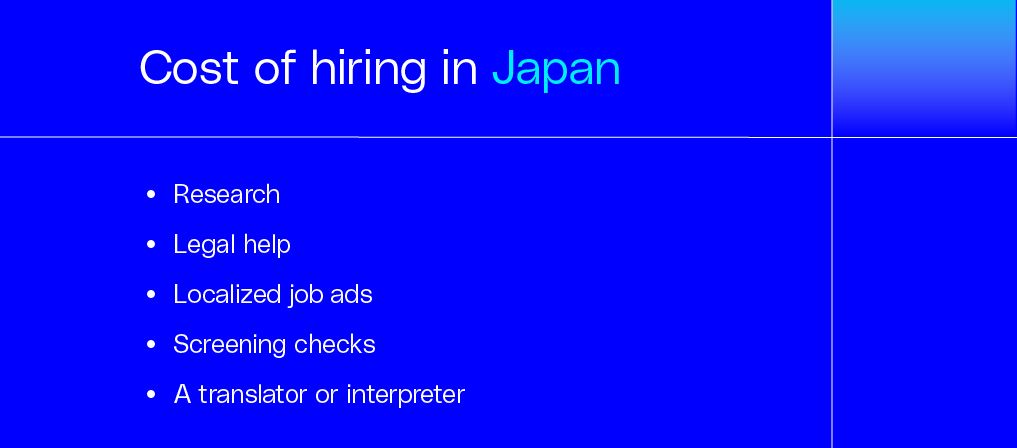
Whether you’re hiring one employee or an entire team in Japan, expenses are inevitable. Budget for the following:
-
Research: Determine where in Japan you want to establish your business, and research the legalities that relate to employment practices there, as well as any requirements for your industry.
-
Legal help: Unless you work with an Employer of Record (EOR) , you may want to hire a lawyer to help you with compliance and ensure you’re following local employment laws .
-
Travel: If you have to travel to Japan for recruiting or setting up your new office, you should factor in these costs.
-
Job advertisements: Advertising your job online or in print can add to your recruitment costs.
-
Translator: You may need to hire a translator to help you communicate with job applicants, both in writing and in interviews.
-
Screening checks: Screening checks can add to your costs. Background checks and criminal record checks are regulated by strict privacy laws in Japan.
According to G-P Verified Sources from Gia, the total annual employer burden rate in Japan is between 15% and 17% of gross salary. This rate can increase in high-risk sectors due to the variable WCI premium.
What does a company need to hire employees in Japan?
Make sure you cover these essentials before expanding your team in Japan:
-
Entity setup or EOR partnership
-
Tax registration
-
Japan Pension Service registration
-
Public Employment Service Center registration for unemployment insurance
-
Workers’ accident insurance through the Labor Standards Office
-
Japanese bank account
Hire full-time employees in Japan without setting up your own entity with G-P EOR . Build your team in Japan at a lower cost and with peace of mind that you’re doing so compliantly.
Steps to hiring in Japan
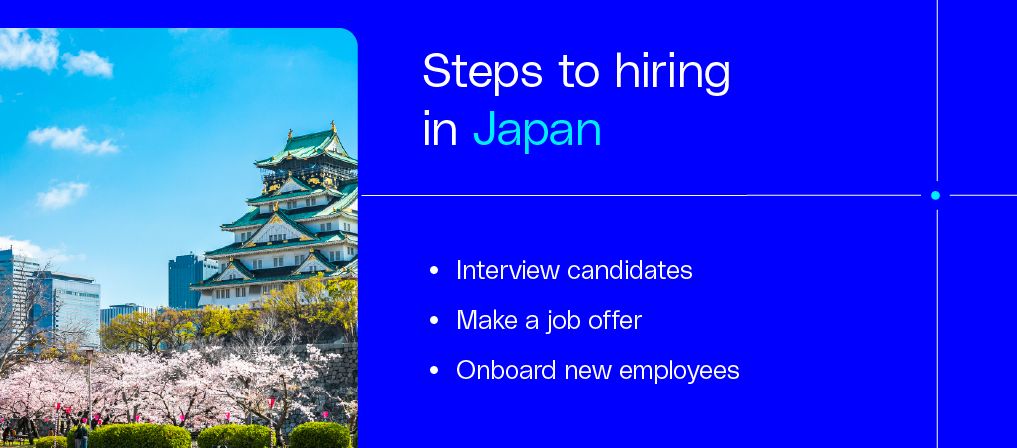
Before you start recruiting, let’s go over the basics of how to hire in Japan . Some aspects of the process will likely look different than what you’re used to in your home country.
1. Get the word out
The first step is to let local job seekers know about your vacant positions. Create job ads and post them online where they’ll gain exposure. Post your role on popular Japanese job boards like Denko-Mirai, GaijinPot Jobs, CareerCross, Daijob, Rikunabi, En Japan, and MyNavi. Write your job ad in Japanese.
These sites will help you gain exposure. If you have connections in Japan, network to identify workers who may want to join your team. Job candidates in Japan tend to pay more attention to personal recommendations than cold calls from recruiters or postings online.
Another option is to engage in a process called shinsotsu. This involves recruiting groups of university graduates as they enter the job market. They may not have as much experience, but graduates offer fresh perspectives, ambition, and a solid educational background.
2. Review applications
In Japan, you might get fewer applications than you’re used to receiving. With 1.26 jobs available per job applicant , local job seekers have plenty of opportunities to choose from.
As you evaluate applications, remember you can always provide training to help a new employee succeed as a member of your team.
3. Interview job candidates
Next, interview candidates who made it onto your shortlist. You can conduct interviews virtually or in person if you have a branch or subsidiary set up. Phone or video interviews are especially helpful if you’re hiring remote employees in Japan and want to avoid traveling there.
Factor in the time difference. For instance, New York City is 13 or 14 hours behind Tokyo, depending on whether daylight savings time in the U.S. is in effect.
4. Make job offers and share the employment contract
Once you’ve identified the right candidate for the role, you can formally offer them the job. If you haven’t already, tell them about the salary and benefits plan.
Share your work rules and create an individualized contract for your new hires. Outline their job duties, compensation , and any other important details.
5. Onboard new employees.
Finally, you can onboard your new employee . Submit pension and health insurance forms within five days of the employee’s start date . You should also inform new employees of their itinerary for their first week and provide any training they need to get started. If you hire any non-nationals in Japan, you’ll also need to submit paperwork to the Public Employment Service Center.
Onboard your team members in Japan in minutes with G-P EOR . We’ll handle the legal and administrative tasks, so you can start working faster. Simple, self-guided workflows ensure a smooth process for you and your new hires.
Hiring contractors in Japan
Working with independent contractors in Japan can be a cost-effective way to test the market and build a presence without the commitment of full-time employees. Contractors based in Japan understand local consumer behavior, rules, and business practices. They’ll be ready to start working quickly with their own equipment and established work processes.
Hiring contractors allows you to easily adjust your workforce based on your business needs, without the complexities and costs of employment.
Before you enter an agreement with an independent contractor in Japan , consider the following:
1. Employees vs. independent contractors
In Japan, employees usually have indefinite contracts, implying ongoing employment. Contractors are hired for specific projects or fixed periods under services agreements, which must clearly define start and end dates. Employees receive regular monthly salaries, and employers withhold income tax and social insurance premiums from their wages. Contractors are paid based on project scopes, hourly work, or milestones. They manage their own income tax filings and social insurance contributions.
2. Penalties for misclassification
Classifying someone as a contractor when they’re not can lead to penalties. If misclassification occurs, you may need to:
-
Pay for withheld income taxes and social insurance contributions for the period of misclassification.
-
Pay fines up to JPY 300,000 and imprisonment for up to six months under the Labor Standards Act.
-
Face disruptions due to contract amendments, payroll system changes, and management training during reclassification.
3. How to pay contractors in Japan
G-P Contractor ™ takes away the messy, time-consuming process of hiring and paying international contractors. You can create and issue contracts and pay contractors with just a few clicks, all while ensuring a compliant process.
Hire employees and contractors in Japan with G-P
Our SaaS and AI-based products – EOR , Contractor , and Gia – help companies of all sizes build and manage global teams.
With more than a decade of experience, the largest team of HR, legal, and compliance experts, and a global proprietary knowledge base, G-P is the recognized leader in global employment .
Make your expansion to Japan easier with G-P. Contact us or book a demo today.











